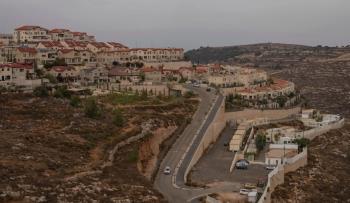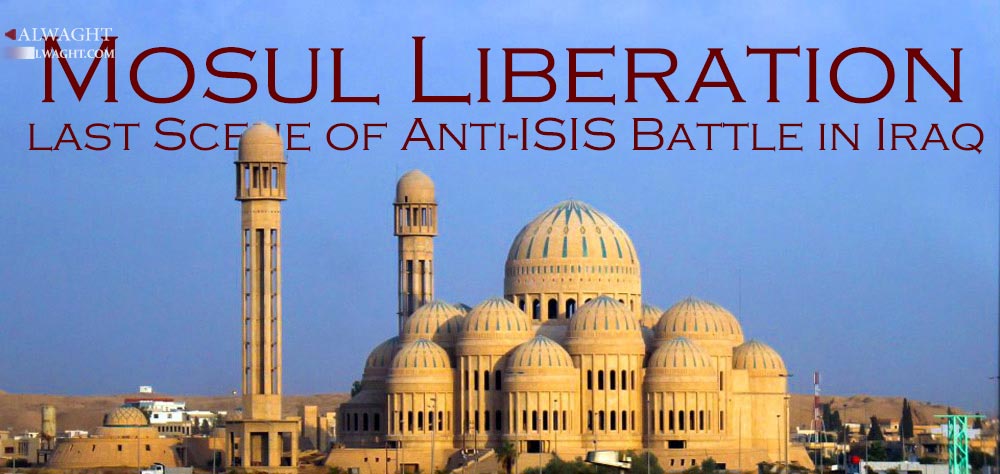Alwaght- Liberation of Fallujah by the Iraqi army on June 17, 2016 from ISIS was a turning point in the process of battling against the terrorist group in Iraq.
On the one hand, Fallujah, after Mosul, was the most important strategic city remaining in the hands of ISIS and it seemed that by recapturing the city, zero hour to retake Mosul from the terrorists has begun. On the other hand, it became clear that ISIS forces have lost the strength to make new advances north of Iraq as they were engaged in fights against the Iraqi army and the Kurdish Peshmerga forces.
In fact, after a period of disorder and weakness of late 2013 and early 2014 that allowed the terrorist group to control large parts of Iraq's territories, at the time being the Iraqi forces are ready enough to press towards Mosul and defeat the terrorist group there. However, despite existence of such potentials in the country’s armed forces, Iraq has failed to recapture the city so far in the shadow of declining to determine a clear strategy and plan for liberation of the ISIS-held Mosul as the country is plagued by rifts between the Iraqi political groups and movements.
Actually, regaining control of Mosul can be the fatal blow to ISIS terror group in the region as it plays role under the cover of Islamic State of Iraq and Levant because the city is significant for being a life line and linking road between Iraq and Syria for transferring military equipment and forces, although ISIS ideology or Daeshism– Daesh is Arabic acronym for Islamic State of Iraq and Levant– would live on under the representation of guerrilla forces or underground terrorist organization after its obliteration in the battlefields.
At the same time, the geostrategic importance of liberation of Mosul for Iraq's central government and Iraq's Kurdistan region in military terms comes from the fact that Mosul is part of the disputed region under the Iraqi constitution's Article 140 which seeks settlement for rifts between the central government of Iraq and the Kurdish region. By reclaiming Mosul, the Peshmerga forces of Kurdistan and the forces of Iraqi army for the first time can officially start a serious military cooperation in a single battlefield.
Defeating ISIS in this region means having a strategic domination by the central government and the Kurds on the linking point of the terrorists in Iraq and Syria, enabling them to put an end to presence of ISIS in Iraq.
Having all these in mind, it can be noted that Mosul and its liberation are key factors playing direct role in shaping political future of Iraq. But since almost a month ago, the foreign forces including the US forces have started to seriously step in the crisis of Iraq. As the preparations go on to kick off operation to recapture Mosul, the political officials and defense ministers from the US, Canada, and European countries have visited Baghdad and Erbil. According to the published news, Washington has placed a demand to be allowed to deploy 560 Marines forces in Qayyarah Airfield, located at 60 kilometers south of Mosul. The reports added that the Marines forces were increased to 2,000 after negotiations between the US Secretary of Defense Ashton Carter and the Iraqi Prime Minister Haider al-Abadi. On the other side, the Canadian Minister of National Defense Harjit Sajjan visited Erbil, the capital of Iraqi Kurdistan region, and vowed to increase weapons support to the Kurdish Peshmerga forces in their fight against ISIS. Furthermore, the Daily Times reported that the Canadian Prime Minister Justin Trudeau has ordered increasing of Canadian forces in Kurdistan region from 69 to 200.
The questions that come down here are that how Mosul's liberation operation would take place? Do the parties engaged in fight need to draw an accurate plan and strategy to retake control of a city that is home to nearly 1 million people? Which military forces must take part in liberation of Mosul? Are foreign forces, including the US', needed to participate in Mosul retaking assault?
In fact, the most important factors that caused delay in launching the liberating assault in Mosul have roots in these questions. The Sunni Arabs in past few months have repeatedly expressed their opposition to participation of Public Mobilization Forces (PMF) in the operation to reclaim control of Mosul. Additionally, the Iraqi central government is severely concerned about the way of dealing with the Peshmerga forces and the form of their contribution to recapture of Mosul. With a look at all of these differences, it can be said that the best scenario and solution for taking Mosul back is participation of all of Iraqi parties. In other words, according to an inclusive agreement all of the internal forces of Iraq, including the Shiite Arabs, Sunni Arabs, Kurds, and Turkmens should realize the liberation process while the foreign forces play a very limited role in the battle. Because the history has proven that intervention of foreigners in the military or political affairs of other countries like Afghanistan, Libya, and others has never led to comprehensive political agreement and stability. They actually use the chance of intervention to seek shares and to get toehold in the other countries' power structures. So, it can be suggested that only in case of an inclusive alliance between all of the Iraqi parties the liberation of Mosul would guarantee a promising and stable future for the Iraqi citizens.
All in all, Mosul occupies an extraordinarily important place in the political future of Iraq, and the behaviors of different Iraqi sides particularly the Shiites, Sunnis, and Kurds in dealing with liberation of the city and the political and administrative future of it can play an essential role in the process of future equations of the country. If any of them highlights its individual identity to deepen the gaps with the others, a comprehensive domestic crisis in Iraq can be predicted. But if the three key groups focus on their unity and accept diversified identity of the country, and cooperate with one another, a transition to national unity and political stability is possible in Iraq. Furthermore, a large-scale participation of foreign military forces like the US' and perhaps some regional powers in Mosul liberating assault can fan tensions and divides and thus further instability in the country.
As a final point, it is clear that the political future of Iraq must be designed by the domestic actors under any condition and not the foreigners.



























